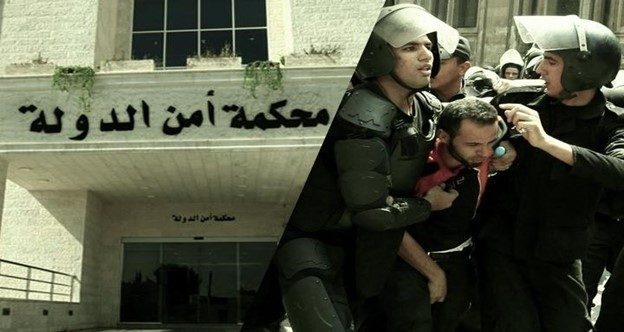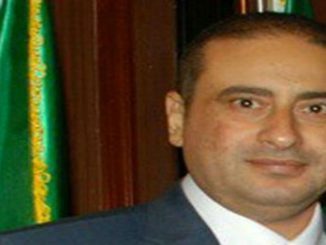
Amnesty International has released a statement demanding that Egypt stop the “ongoing trials of dozens of arbitrarily detained human rights defenders, activists, opposition politicians, and peaceful protesters by emergency courts.”
The welcome lifting of a years-long state of emergency in Egypt is marred by ongoing trials of dozens of arbitrarily detained human rights defenders, activists, opposition politicians and peaceful protesters by emergency courts where proceedings are inherently unfair, Amnesty International said two days ago.
The statement specifically highlights the plights of political prisoners Alaa Abdel Fattah, Mohamed El-Baqer, and Mohamed “Oxygen” Ibrahim, whose trial on “false information” charges was again postponed today. Amnesty noted that they are being prosecuted for statements that are “protected under Egypt’s constitution and international obligations to respect the right to freedom of expression.”
The statement said that blogger and activist Alaa Abdel Fattah, human rights lawyer and director of Adalah Center for Rights and Freedoms Mohamed Baker and blogger and activist Mohamed Ibrahim (known as Mohammed “Oxygen”), would appear (on 1 November) before an Emergency State Security Court (ESSC) to face politically motivated charges of “spreading false information to undermine national security” over their social media posts.
All three have spent more than two years in abusive pretrial detention in appalling conditions, denied private access to lawyers and regular contact with their families.
They are all currently being held in Tora Maximum Security 2 prison in what Amnesty describes as “punitive and abusive conditions that violate the absolute prohibition of torture and other ill-treatment.”
Although Philip Luther, Amnesty International’s Middle East and North Africa research and advocacy director, celebrated the fact that authorities will no longer be able to refer new cases to emergency courts now that the state of emergency has ended, he decried what he called “a sting in its tail”:
“Existing trials before these courts are set to continue, their number swollen by a recent string of referrals”—at least 20 over the last three months, according to the organization’s count.
“The lifting of the state of emergency is good news in that the authorities will no longer be able to refer new cases to the emergency courts that were created under it.
However, the news has a sting in its tail. Existing trials before these courts are set to continue, their number swollen by a recent string of referrals of detained human rights defenders and activists,” said Philip Luther.
Luther added, “For this to be a meaningful step towards addressing Egypt’s human rights crisis, the authorities must immediately and unconditionally release those facing trial before emergency courts solely for peacefully exercising their human rights.”
He noted that emergency courts’ proceedings “breach the most basic fair trial standards, including defendants’ right to have their convictions and sentences reviewed by higher courts.”
They include Alaa Abdel Fattah, Mohamed Baker and Mohamed ‘Oxygen’ Ibrahim, who have already spent over two years in prison solely for their peaceful activism and defence of human rights.
“The authorities should also stop the use of emergency courts altogether, as their proceedings breach the most basic fair trial standards, including defendants’ right to have their convictions and sentences reviewed by higher courts,” he said.
Parliament boosts power of Sisi and military
Along with the continued use of emergency courts, another sign that the end of the state of emergency is not the human rights panacea that the regime claims was parliament’s approval on October 31 of amendments to three laws that collectively expand the powers of the president and the military.
Once approved by Abdel Fattah al-Sisi, the amendments will permanently enshrine the military’s role in protecting “public and vital” establishments and ensure that civilians accused of attacking such establishments are tried in military courts.
Amendments to the already-abusive counterterrorism law, meanwhile, will allow the president to delegate an official to implement curfew or evacuation orders in a given area and will increase penalties for those violating the orders.
Amendments to the penal code will make collecting any statistics on the military or information about current or former members without permission from the Ministry of Defense punishable by up to five years in prison.
MP Maha Abdel Nasser revealed her “reservations about the timing, as it coincides with the president’s abolition of the state of emergency and the issuance of the human rights strategy.”



